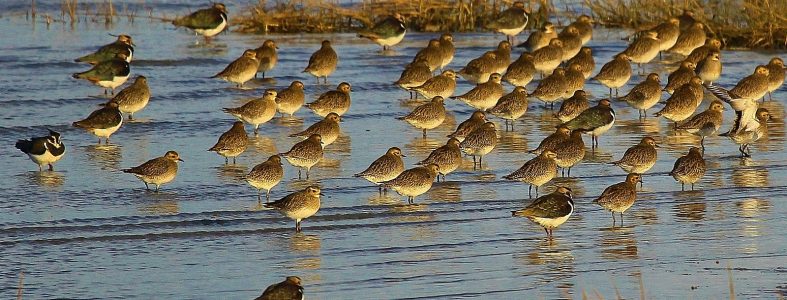
The Remarkable Significance of Pegwell Bay’s Biodiversity by Richard Kinzler
Pegwell Bay, located on the southeastern coast of England, is a coastal nature reserve renowned for its exceptional biodiversity. The bay’s diverse ecosystem, encompassing a wide range of habitats, plays a vital role in supporting numerous plant and animal species, contributing to the overall health of the environment. I would like to explore the significance of Pegwell Bay’s biodiversity and highlights the importance of preserving and protecting this unique coastal landscape.
Ecosystem Stability.
Pegwell Bay’s diverse array of habitats, including mudflats, salt marshes, sand dunes, and grasslands, create a rich and interconnected ecosystem. Each habitat provides unique resources and environmental conditions that support a wide variety of organisms. The stability of this ecosystem is crucial for overall ecological balance. The inter-dependencies between species, such as predator-prey relationships and symbiotic interactions, help maintain the health and resilience of the entire ecosystem.
Species Diversity
Pegwell Bay serves as a vital habitat for a remarkable range of plant and animal species. It acts as a crucial breeding and feeding ground for several bird species, including migratory birds such as the Little Tern and the Ringed Plover. The bay’s mudflats and salt marshes provide an abundant food source for wading birds and waterfowl. Additionally, the dunes and grasslands support a diverse array of insects, small mammals, reptiles, and plant species. The presence of such biodiversity enhances the overall stability and productivity of the ecosystem.
Economic and Recreational Value.
Pegwell Bay’s biodiversity offers significant economic and recreational benefits to both local communities and visitors. The bay attracts nature enthusiasts, birdwatchers, and photographers who come to witness and appreciate the diverse range of species. This, in turn, boosts tourism and local businesses. Furthermore, the presence of a healthy ecosystem contributes to clean air, water filtration, and erosion control, which are essential ecological services benefiting nearby communities.
Climate Change Mitigation.
Biodiversity plays a crucial role in mitigating climate change impacts. Coastal ecosystems, such as salt marshes and seagrass beds found in Pegwell Bay, are highly effective carbon sinks, capturing and storing significant amounts of carbon dioxide from the atmosphere. These habitats act as natural buffers against storm surges and help mitigate the effects of rising sea levels and coastal erosion. Protecting and restoring these habitats is essential for climate change adaptation and resilience.
Education and Research.
Pegwell Bay’s biodiversity provides an invaluable opportunity for scientific research and education. The bay’s unique ecosystems offer insights into ecological processes, species interactions, and adaptation to changing environmental conditions. Studying the biodiversity of Pegwell Bay contributes to our understanding of coastal ecosystems and aids in the development of conservation strategies. Additionally, educational programs and interpretive centers can raise awareness about the importance of biodiversity conservation, fostering a sense of stewardship among both local communities and visitors.
Pegwell Bay’s biodiversity holds immense value and significance on multiple levels. From supporting ecosystem stability to providing economic benefits and playing a crucial role in climate change mitigation, this coastal nature reserve is a treasure trove of life. Preserving and protecting the diverse habitats within Pegwell Bay is not only essential for the survival of numerous species but also for the well-being of local communities and the long-term health of our planet. Recognizing and appreciating the importance of Pegwell Bay’s biodiversity
Stay Connected